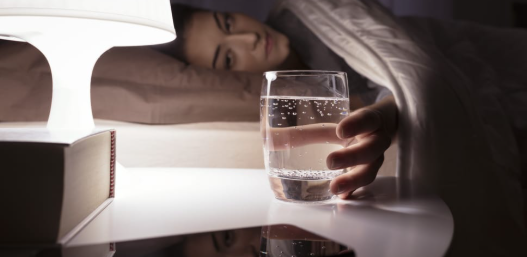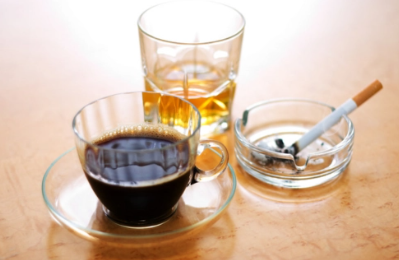
Getting a good night’s sleep should be as effortless as breathing. Yet, for millions, it’s a nightly struggle—battling their internal clock and frequent trips to the bathroom 🚽. If your sleep isn’t as restful as it once was, it might be due to subtle habits that quietly undermine your rest.
Occasional wake-ups are normal, but if you’re waking multiple times every night and feeling drained in the morning, it’s time to take a closer look at your body and bedtime routines 🧠. This article goes beyond the basics—it offers tools to help you reclaim deep, restorative sleep, support your urinary health, and wake up feeling genuinely refreshed.
Prepare for a comprehensive, eye-opening guide filled with data-backed insights, simple yet effective lifestyle tips, and powerful strategies to boost your well-being and sleep quality 😌. Let’s dive in! 🚀
☕🚫 1. Drinking Fluids Late at Night: A Common But Costly Mistake

Hydration is essential, yes. But drinking fluids after 7 or 8 p.m. can become your worst enemy if you’re trying to get uninterrupted sleep 😓. The body needs to eliminate excess water, and if you do it too late, your bladder will mercilessly wake you up in the middle of the night.
🧃 It’s not just about water. Juices, herbal teas, milk, nighttime smoothies, or even “a glass of wine before bed” can ruin your sleep cycles. Everything that goes in… wants to come out!
👉 Solution:
Minimize fluids 2 to 4 hours before bedtime.
If you’re thirsty, take small sips instead of drinking full glasses.
Avoid diuretic beverages like green tea or mate.
🔍 Important fact: In people with a sensitive bladder, even 200 ml of liquid can trigger nighttime urination.
🛑🍷 2. Caffeine and Alcohol: Hidden Enemies of Sleep

Many drink coffee in the afternoon to “get through the day” or have a glass of wine with dinner to relax 🍷. What few people know is that both directly impact the quality of sleep and the frequency with which you wake up to urinate.
Caffeine stimulates the nervous system, delays deep sleep, and increases kidney activity, causing more urination.
Alcohol can induce drowsiness, but it fragments sleep, dehydrates, and is also a diuretic.
📌 Specific recommendation: Avoid caffeine after 4:00 p.m. and limit alcohol to small amounts, ideally before 7:00 p.m.
💤📱 3. Poor Sleep Hygiene: It’s Not Just About the Bathroom
Sleeping isn’t enough. The quality of your rest depends on everything you do before bed. If you check your phone in bed, eat a heavy meal, leave the TV on, or work late, you’re sabotaging your deep rest 😴.
📲 The blue light from screens disrupts the production of melatonin, the key hormone for falling asleep. And if your body doesn’t enter deep sleep, any stimulus—like a slight pressure on your bladder—can wake you up.
🎯 Effective tips for better sleep:
CONTINUE READING ON THE NEXT PAGE 🥰💕

